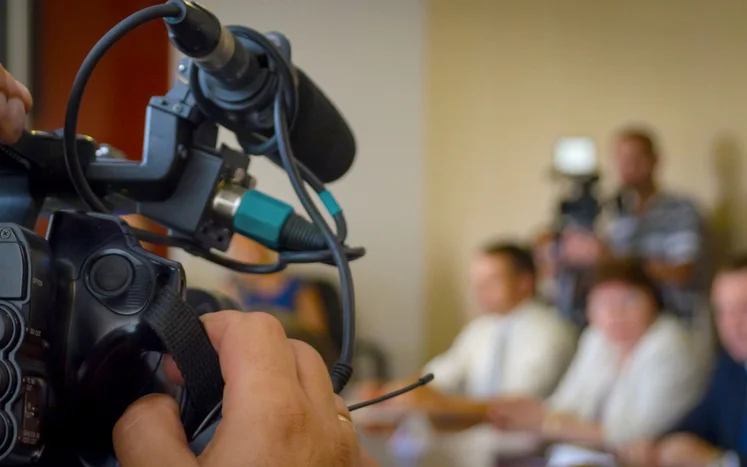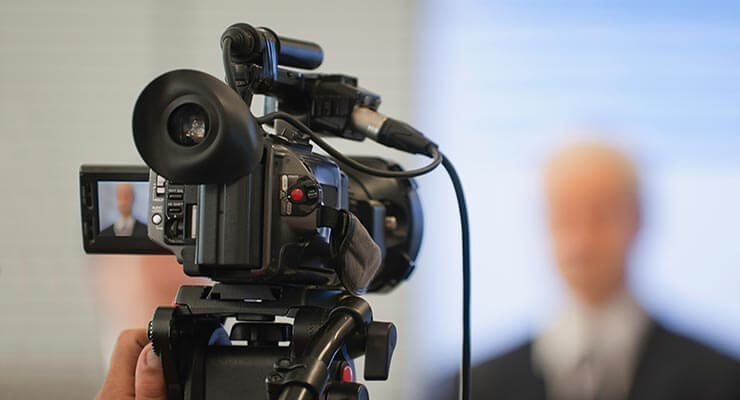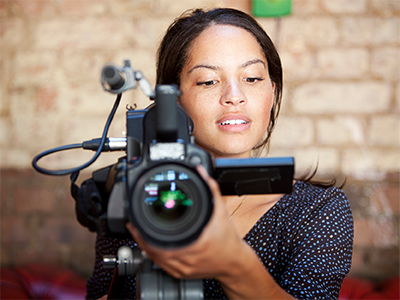Trusted Legal Videography for Capturing Accurate Evidence.
Trusted Legal Videography for Capturing Accurate Evidence.
Blog Article
The Duty of Legal Videography in Depositions and Trials
Lawful videography has actually arised as an important device in both depositions and trials, giving a complex strategy to recording witness testimonies. By capturing not just the spoken word however also the subtleties of non-verbal interaction, this tool enhances the integrity of testimonies and preserves crucial evidence for future proceedings. As legal professionals increasingly identify its value, it triggers a deeper evaluation of how these visual documents can affect juror understandings and test end results. What implications might these developments hold for the future of lawful technique?
Importance of Lawful Videography
Legal videography plays a pivotal duty in the paperwork and presentation of depositions and tests. This specific field incorporates technical abilities with lawful knowledge to develop a trustworthy record of proceedings that can substantially influence instance results. The appearance of legal videography enhances the understanding of witness testament, enabling jurors and judges to observe not only the talked words but additionally the behavior, feelings, and body language of the witnesses.

The importance of lawful videography extends past the court room; it additionally plays a crucial role in preserving evidence for future reference, whether for allures or additional lawsuit. Thus, its assimilation right into the lawful procedure is important for making sure a reasonable and precise representation of the truths, ultimately adding to the search of justice.

Process of Legal Videography
While recording the nuances of depositions and trials, the process of legal videography includes a number of vital steps that guarantee high-quality, precise recordings. At first, a specialist legal videographer prepares by reviewing the case materials and recognizing the particular requirements of the deposition or test. This prep work consists of familiarizing themselves with the individuals and the context, which assists in catching important details.
On the day of the recording, the videographer establishes the necessary devices, which commonly includes high-definition electronic cameras, microphones, and appropriate illumination. Making sure optimum angles and sound quality is critical, as it directly affects the performance of the recording. The videographer connects with lawyers and participants to establish procedures, making sure that everybody comprehends the recording procedure.
Throughout the deposition or test, the videographer carefully tapes the process, paying attention to both spoken and non-verbal hints. legal videography. This includes recording the demeanor and reactions of witnesses and attorneys. After the session ends, the videographer might edit the footage for quality and compliance with legal criteria, creating an end product that precisely reflects the process for future recommendation and use in legal contexts
Benefits in Depositions
The unification of videography in depositions uses various benefits that enhance the overall process of gathering evidence. One key benefit is the capacity to catch witness statements with visual and acoustic integrity, supplying a more exact representation of the witness's demeanor, tone, and body language. This multidimensional technique allows lawyers and courts to analyze reliability better than typical written transcripts alone.
Furthermore, videographed depositions act as a powerful device for protecting testimony. Should a witness become inaccessible for trial, their taped deposition can be played in court, ensuring that their evidence continues to be available and appropriate. This facet considerably lowers the risk of shedding critical information that could impact situation outcomes.
In addition, using legal videography promotes much better prep work for lawyers. Reviewing video footage enables legal teams to examine and refine their strategies, identifying strengths and weak points in their instances. This preparatory benefit check can result in more engaging discussions in court.
Last but not least, videography boosts the total professionalism and trust of the deposition process, instilling self-confidence in clients pertaining to the thoroughness of their legal depiction. By leveraging technology, attorneys can substantially boost the performance of depositions.
Influence on Trials
In several tests, the combination of videography can substantially influence the discussion of proof and the jury's assumption. Lawful videography catches witness statements and vital proof in a dynamic layout, enabling jurors to engage with the material on numerous levels. This visual element improves the narration facet of a test, offering context and emotional vibration that standard text-based evidence may do not have.
In addition, video recordings can act as effective devices for impeachment throughout cross-examination. When discrepancies develop in between a witness's previous declarations and their court room statement, video proof provides an unbiased recommendation that can sway jurors' viewpoints. This immediacy and quality can strengthen the credibility of a party's story while all at once threatening opposing disagreements.
Additionally, using videography can help improve intricate details, making it extra obtainable to jurors who might battle to realize detailed details offered entirely via verbal statement. By combining visuals with auditory info, lawful videography can boost retention and understanding, ultimately affecting the court's decision-making process. As a result, the impact of videography in trials expands past simple visual appeals; it plays an essential function fit the lawful landscape and outcomes.
Future Trends in Legal Videography
As we look towards the future of lawful videography, several emerging patterns assure to reshape its function within the court. One significant fad is the combination of man-made knowledge (AI) in video clip analysis and editing - legal videography. AI can improve the procedure of recognizing key moments in tape-recorded depositions, enabling attorneys to quickly access pertinent material, thereby improving performance in instance preparation
Additionally, the increase of online truth (VIRTUAL REALITY) and increased fact (AR) modern technologies is anticipated look at this site to change just how jurors experience proof. By immersing jurors in a simulated setting, these modern technologies can give an extra extensive understanding of intricate circumstances, leading to even more educated deliberations.

In addition, the raising need for remote depositions, increased by the COVID-19 pandemic, will likely proceed. Legal videographers will certainly require to adapt to new software and platforms to make sure high-quality recordings in online settings.
Lastly, the growing focus on information security will require stricter protocols for saving and sharing video evidence. As the lawful landscape progresses, legal videographers must remain abreast of these patterns to maintain their importance and efficiency in the judicial process.

Verdict
In summary, legal videography serves a vital feature in the judicial procedure, enhancing the honesty of depositions and trials. As innovation continues to advance, lawful videography is positioned to more change its role within the read here legal landscape.
Report this page